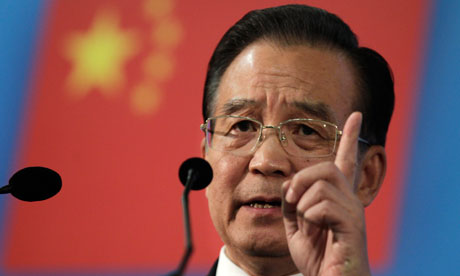China talks press rights – but it won’t walk the walk
A free press is the first step towards political reform, but too many Chinese journalists are still languishing in prison
Originally published by guardian.co.uk, 19 October 2010

Journalists in China are pushing for media reform. So far, China’s leaders aren’t responding but a controlled debate on journalists’ rights is flourishing in the mainstream media.
Is this a sign that press freedom is coming to China? Not quite. A report published today by the Committee to Protect Journalists (CPJ) found that despite official statements in support of press rights, the authorities continue to censor and punish independent reporting.
Senior Communist party reformers attacked censorship in an open letter last week, but leaders at the central committee’s five-year planning session, which concluded on Monday, paid little heed. Such inconsistencies suggest that while the debate looks like a positive development, it is not a signal that information control is relaxing. In fact, use of the word “rights” may be intended to divert attention away from restrictive media policies.
News stories that cast a critical light on business owners, academics or local police for harassing reporters are sanctioned, even encouraged, by the Chinese government. At the same time, the internet, which is increasingly used by Chinese journalists to spread the word about their own tribulations, provides a vehicle for media activism.
These factors can combine to produce genuinely positive results. In September, police in Beijing arrested a prominent urologist for ordering attacks on two science writers whose reporting he believed had thwarted an academic appointment. According to one of those journalists, Caijing magazine’s Fang Xuanchang, a blog post about the attack sparked the public outcry that prompted the police to investigate.
But the worst anti-press violations in China are committed by the state. Information authorities control licensing for all news outlets, restrict news coverage of sensitive issues, and punish violators, according to CPJ research.
Freelances or online commentators outside the system are especially vulnerable to persecution. CPJ recorded 24 journalists in Chinese prisons in its 2009 year-end census, most of whom worked online. In July, a court in the predominantly Muslim Xinjiang Uighur autonomous region sentenced Gheyret Niyaz, editor of Uighurbiz (a Chinese-language website focusing on Uighur issues) to 15 years’ jail for endangering state security after he covered ethnic violence on his site and gave interviews to foreign media.
Press rights, as the government recognises them, do not extend to challenging these violations. While researching the report this summer, I spoke with some uncompromising journalists in China who are trying to change that.
“It’s essential to speak openly and encourage others to do the same,” one told me. The talk was off the record – the journalist had recently signed an open letter protesting the reported arrest of a colleague who wrote about an official, and was worried about reprisal for speaking to me individually. The dozens of media practitioners who signed the letter believed their safety lay in numbers. “They can’t punish us all,” another told me.
Hundreds within China have taken similar calculated risks in pursuit of real media freedom. After the 23 senior members of the Chinese Communist party put their names to a public call to abolish censorship last week, one signatory told the Associated Press the letter was inspired by the unjust arrest of a journalist writing about corruption.
That letter, like the one by journalists, was published online. Propaganda authorities banned the mainstream media from reporting on them and used the sophisticated technology they have developed to censor the internet to limit their circulation, according to international news reports. That is a sign the debate on defending journalists is permitted only on their terms. Top leaders may hope they can extend limited press rights to news outlets that toe the line without relinquishing any control on information. If that trend continues, those “rights” are simply a new front for old authoritarianism.
Many are more optimistic. China’s premier, Wen Jiabao, has mentioned free expression and political reform in recent public comments. Like the Communist party elders, many journalists believe a free press, as a critical first step in achieving that reform, may be within reach.
Senior leaders in the Communist party’s central committee plenary session, a four-day meeting that ended on Monday, did not pick up on Wen’s cues. They promised only in the most general terms to deepen China’s “reform and opening-up process” as part of the party’s plan for the next five years, according to the official Xinhua news agency.
Such reform and opening-up is not possible without a free and independent media. China’s leaders must make, and meet, specific commitments to release imprisoned journalists and allow independent reporting and comment, with all the rights and responsibilities that entails. Chinese journalists, intellectuals, and even Communist party reformers, are calling for it. The question is, will China listen?
http://www.guardian.co.uk/commentisfree/2010/oct/19/china-press-rights

